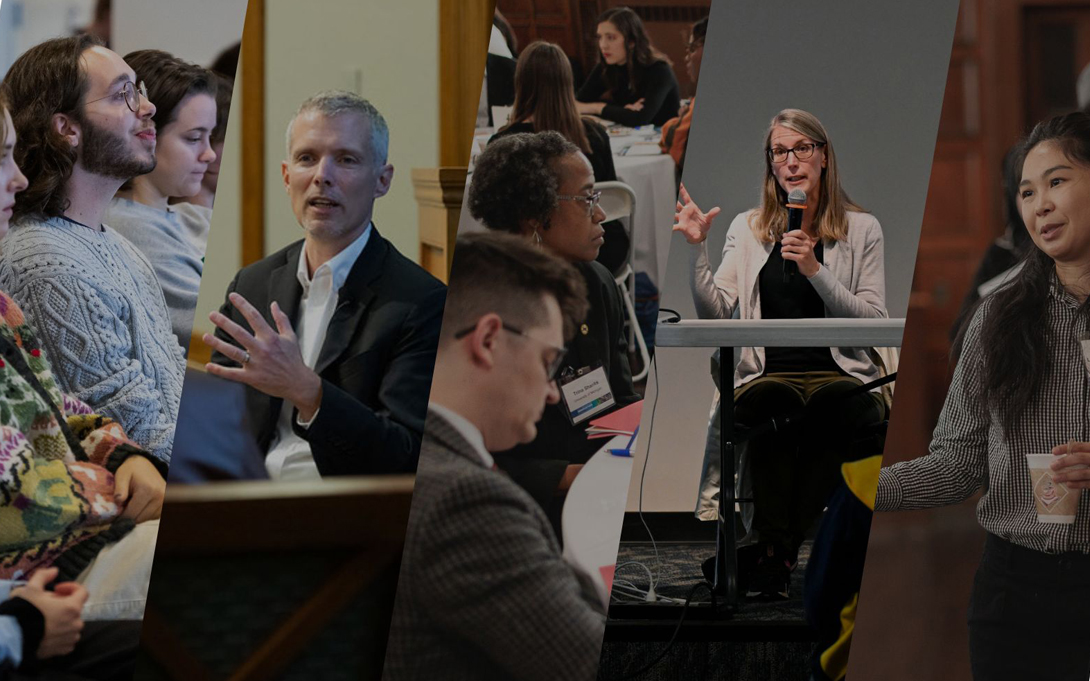
Poverty Solutions at the University of Michigan last year informed the largest-ever increase in state funding for youth homelessness programs, advised federal policymakers on place-based strategies for tackling poverty and laid the groundwork for innovative cash assistance programs.
These policy impacts and other accomplishments from the past year at the national, statewide, local and campus levels are outlined in the presidential initiative’s 2023 impact report, which was released Feb. 1.
Strong partnerships with policymakers, community groups and academic scholars are instrumental in driving Poverty Solutions’ progress in using action-based research to successfully alleviate poverty.
“There are many ways to gauge impact, but the ultimate measure is whether we are positively impacting people’s lives in meaningful ways, said H. Luke Shaefer, founding faculty director of Poverty Solutions, which launched in 2016.
“That type of impact is only possible through partnerships, and we continue to build relationships with policymakers and practitioners to ensure our research is responsive to the pressing issues of the day.”
Shaefer also is the Hermann and Amalie Kohn Professor of Social Justice and Social Policy and a professor of public policy in the Gerald R. Ford School of Public Policy, and a professor of social work in the School of Social Work.
Faculty from various fields, 139 students from 17 of U-M’s 19 schools and colleges, plus 14 staff members contributed to Poverty Solutions’ work last year. That included hosting 16 events exploring the causes and consequences of poverty; supporting the publication of 17 academic journal articles, working papers and policy briefs; and garnering more than 500 mentions in national, regional and local news outlets.
“Part of our mission at Poverty Solutions is to foster a highly interdisciplinary approach to confronting poverty. We cultivate relationships with faculty and students across the university to build a collaborative learning community that can bring new ideas to fruition,” said Kristin Seefeldt, associate faculty director of Poverty Solutions and an associate professor of social work and public policy.
Policy impact highlights include:
- Laying the groundwork for cash assistance programs that will launch in 2024 and serve as blueprints for child allowance and guaranteed income programs across the country. These include Flint Rx Kids, a citywide maternal and infant cash prescription program, and Guaranteed Income to Grow Ann Arbor, which provides guaranteed income to 100 entrepreneurs and gig workers with low incomes in Ann Arbor.
- Informing a $5.3 million boost in state funding for youth homelessness programs, which was the largest increase in funding for youth homelessness prevention and intervention services in the history of Michigan’s state budget.
- Providing technical assistance to organizations involved in the Detroit Financial Well-Being Innovation Challenge.
- Advising federal policymakers on place-based approaches to poverty alleviation, which Poverty Solutions is pursuing in partnership with community organizations across the country.
The impact report also spotlights Poverty Solutions’ efforts to make data more accessible on food security and opioid use, support faculty research on transportation insecurity, shed new light on barriers to affordable and accessible child care in Michigan, explore public opinion on reparations, and promote workforce preparation for local young adults.
“The diversity of our projects reflects the ways housing, education, the labor market, child care and other broad systems intersect. This is why collaborative, interdisciplinary approaches to solutions are so vital,” Shaefer said.
READ THE REPORT
Written by Lauren Slagter, Poverty Solutions

